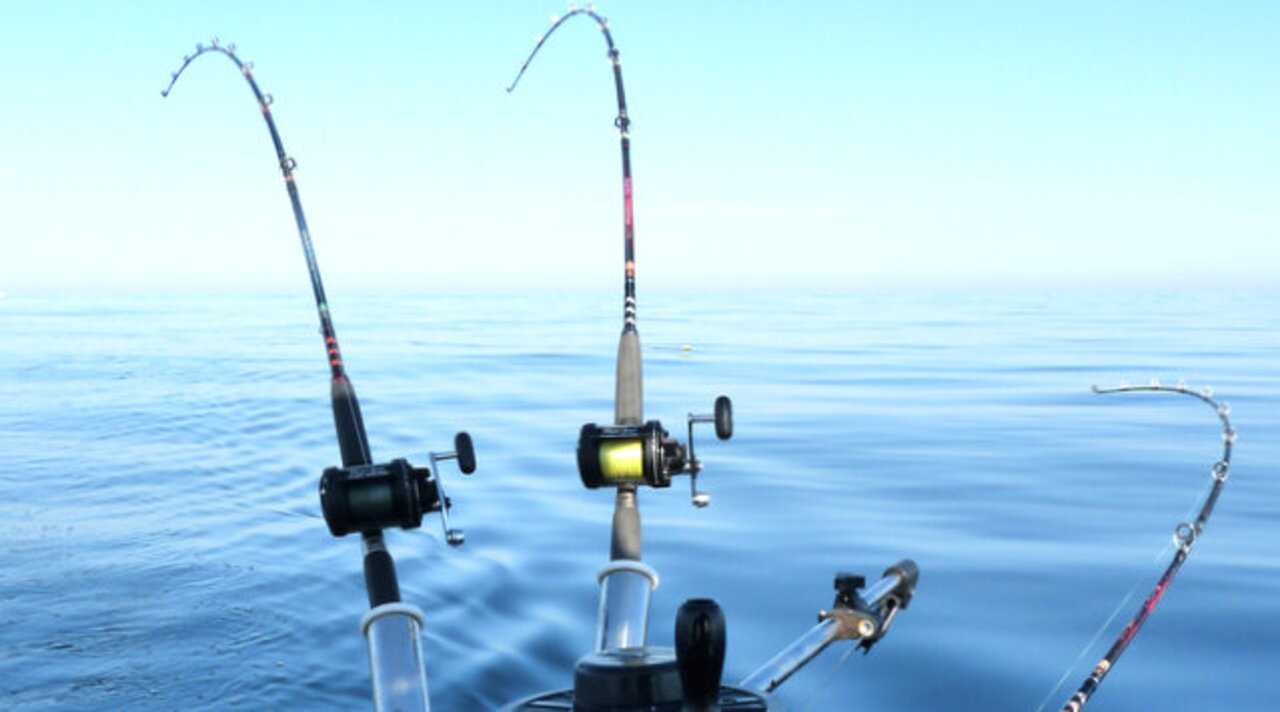Project
What kind of fishing experience do you want?

Choice experiments for preference measurement of management scenarios in salmon angling
Fishing for salmon in the Baltic Sea is not only a popular recreational activity, but also an important industry. By improving the protection of weak salmon populations in the Baltic Sea, it was decided in 2022 to limit the harvest of salmon to fish without adipose fin (stocked fish). At the same time, a bag limit of one salmon per day per angler was introduced. But what do anglers think of these new regulations and which fishing experience would they prefer?
Background and Objective
The Baltic salmon stock composes of a variety of salmon populations originating from different rivers along the Baltic coast. Overall, the salmon populations have developed very positively since the 1990s, which is reflected in a continuous increase in the number of migrating smolts from the rivers. In the southern Baltic Sea, however, there are still some rivers with very weak salmon populations that show little recovery despite reductions in fishing mortality, but overall also contribute little to salmon production in the Baltic Sea. Nevertheless, there is a risk here that local populations will be lost forever, thus also reducing the genetic diversity of Baltic salmon. Since much of the marine fisheries for salmon (commercial and recreational) in the Baltic Sea are conducted in areas where populations are mixing, this led to the recommendation to close all fisheries in the southern and central Baltic Sea that could potentially catch salmon from rivers with weak populations. To protect these weak salmon populations, an EU-wide regulation was then introduced for the first time in 2022, banning commercial fishing in the open sea, south of the Åland Sea, altogether. For recreational fishing, a uniform bag limit of 1 salmon per day per angler was introduced in the same area. In addition, the removal of salmon was limited to stocked fish (fish without adipose fin).
The introduction of the new regulations in the recreational salmon fishery, was a drastic step and has significant impact on angler behavior and therefore economic consequences. In Germany, Baltic salmon and the associated recreational fishery are of great tourist and economic importance, especially for the island of Rügen. Our data collection, which has been conducted regularly since 2016, shows that approximately 5,200-5,500 salmon trolling trips take place annually in the area of the Baltic Sea waters of Rügen, resulting in the removal of 4,500-5,500 salmon (Weltersbach et al., 2021). On average, each salmon angler spends about €2,750 per year on salmon fishing in Germany. This results in a total estimated annual expenditure of around €5 million on salmon angling in the region, which corresponds to expenditure of around €1,000 per caught salmon.
The objective of this study is to understand which regulations and which fishing experience anglers prefer fishing for salmon in the Baltic Sea.
Approach
We use choice experiments in which we let anglers choose among different fishing experiences and regulations to investigate their preferences for them. The choice experiment will be part of a larger online survey about salmon fishing in the Baltic Sea. Participants will be recruited locally through face-to-face interviews directly in the harbor and advertising for the survey on social media.
A special feature is that the survey and the choice experiment will be conducted simultaneously in Denmark and Germany to capture the range of willingness to pay and robustness of preferences.
Thünen-Contact

Involved Thünen-Partners
Involved external Thünen-Partners
-
Humboldt-Universität zu Berlin
(Berlin, Deutschland) -
Leibniz-Institut für Gewässerökologie und Binnenfischerei (IGB)
(Berlin, Deutschland) - Danish Technical University (DTU)
(Kopenhagen, Hirtshals, Charlottenlund, Dänemark)
Funding Body
-
European Union (EU)
(international, öffentlich)
Duration
1.2023 - 6.2026
More Information
Project status:
ongoing

![[Translate to English:] [Translate to English:]](/media/_processed_/d/7/csm_Startseite-OF_03_c0dfd6e750.png)
![[Translate to English:] [Translate to English:]](/media/_processed_/a/3/csm_20181116-151457-Stella-Jerome-Fischfalle-Warnem%C3%BCnde-Dorsche-im-Netzk%C3%A4fig-5691_heller_3050c72fa2.png)





